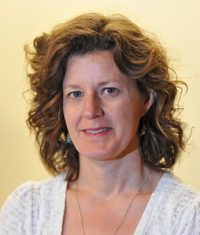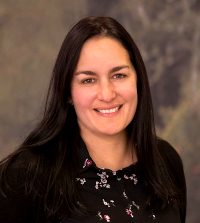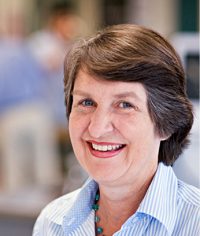
Associate Professor Julie Cary
Dr. Julie Cary is the Director of Simulation-Based Education (SBE) at Washington State University, College of Veterinary Medicine. A board-certified large animal surgeon, she was successful in both private practice and academia prior to a career transition focused on developing and delivering simulation-based education to a variety of healthcare audiences.
She received her medical education credentials from the University of Dundee in 2017 and became a Certified Healthcare Simulation Educator in early 2018. With her expertise in clinical communication, she contributed to the development of multiple international communication programs and provided the veterinary examples and expertise for one of the few veterinary communication guidebooks. In 2019 the WSU CVM SBE program was granted accreditation by the Society for Simulation in Healthcare, which marks the first time this designation has been granted a program developed specifically for veterinary medicine.
Dr. Cary’s interests are in using SBE to equip learners and the profession with the skills necessary to thrive in veterinary medicine and in life.

Dr Eloise Jillings
Tēnā koutou katoa. Ko Ngāti Maru tōku iwi. Ko Eloise Jillings tōku ingoa.
Hi everyone. My name is Eloise Jillings and my iwi (tribe) is Ngāti Māru from the Thames area in New Zealand. Like many Māori (indigenous people of New Zealand) I didn’t grow up in the area that my whānau (family) hails from. I was born in Aotearoa New Zealand to a Māori mother and Canadian father, and my family moved to Canada when I was seven.
It was there that I solidified my career goal of becoming a veterinarian. I returned to Aotearoa as a 19-year-old to study for my veterinary degree. Following graduation as a veterinarian, I had planned to pursue a surgical speciality, but then the lure of clinical pathology pulled me in a new direction. My current roles in the Massey University School of Veterinary Science are Associate Dean – Admission and Students, and also senior lecturer in clinical pathology.
My research interests have migrated from clinical pathology to veterinary education, with particular focus on student selection, and indigeneity in the veterinary profession.

Associate Professor Elizabeth Tudor
From 2008-2018, Liz was Associate Dean, Curriculum Strategy at the University of Melbourne’s Faculty of Veterinary and Agricultural Sciences. In this role she has had responsibility for the development, and design of the Doctor of Veterinary Medicine (DVM) program and more recently has led the renewal of the Bachelor of Agriculture.
In 2005 Liz established the Western Arnhem Land Dog Health Program (WALDHeP) to provide veterinary dog health services to remote Australian Indigenous communities in the Northern Territory. This annual program has been sustained over fourteen years, and expanded to service communities across West Arnhem Land and the Vic Daly region. In 2016, she established the East Arnhem Residency program that enables the University of Melbourne to partner with East Arnhem Regional Council in delivery of dog health programs, and fosters One Health research collaborations with NT health scientists and health providers.
Liz is Foundation Chair of the Melbourne Indigenous Transition School that every year enables 22 young Indigenous students from regional and remote Australia to access educational opportunities in Melbourne schools.